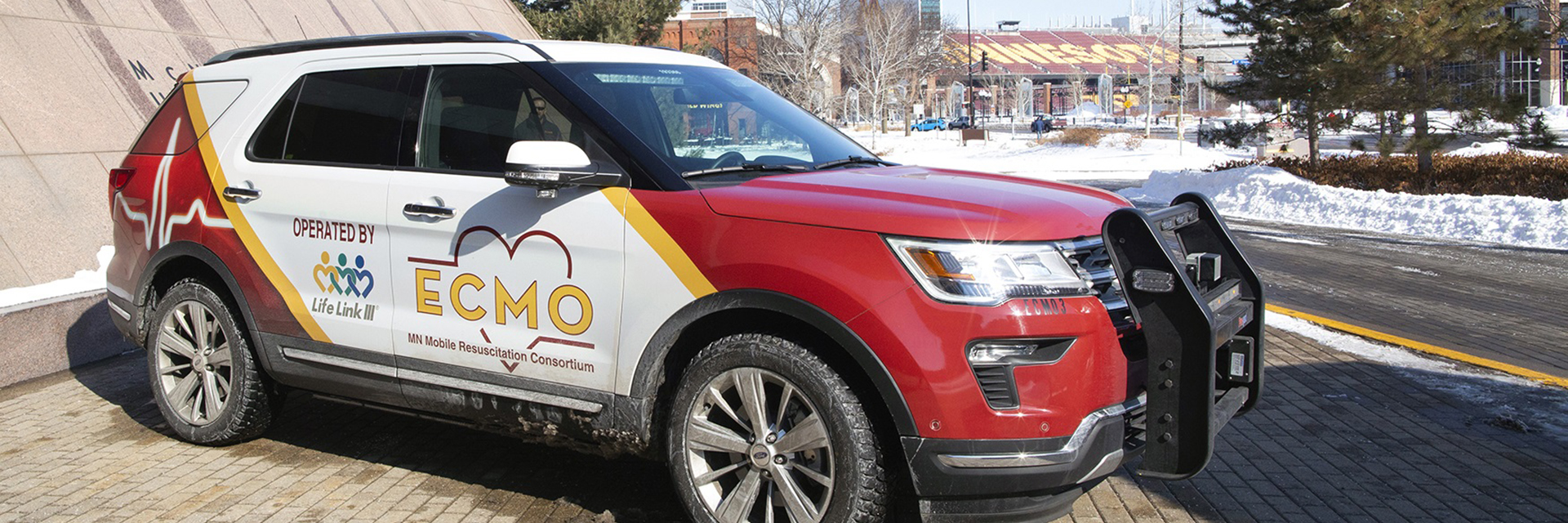Center for Resuscitation Medicine

The Center for Resuscitation Medicine is a virtual, interdisciplinary center at the University of Minnesota Medical School with the goal to advance research, education, and community engagement in the field of resuscitation medicine.
The Center for Resuscitation Medicine will be the first of its kind center in the US dedicated to innovative research, world-class training, and clinical leadership to improve outcomes for sudden cardiac arrest.
Goals
- Pioneer advances in the treatment of sudden cardiac arrest
- Advance training for the next generation of resuscitation clinicians and scientists
- Provide the framework to accelerate treatments and new discoveries to optimize patient care
- Lead a coordinated response to the needs of sudden cardiac arrest patients in Minnesota and become a model for cities across the US
Deliverables
- Management and Development for MMRC Project
- Data collection and analysis for the mobile ECMO project
- CARES-statewide resuscitation efforts based on research, data collection, and new science
- Funding through NIH, private philanthropy, and others to continue advancing the field of resuscitation
- For publications, please select provider under CRM Director
About Sudden Cardiac Arrest
Sudden Cardiac Arrest (SCA) is an electrical malfunction of the heart that is immediate, and unexpected. This loss of heart function disrupts its pumping, stopping blood flow to the rest of your body.
SCA is NOT a heart attack, which is when a blockage limits blood flow to a portion of the heart. A heart attack can however trigger an electrical malfunction that leads to sudden cardiac arrest.
If not treated immediately, SCA can cause sudden cardiac death. Beginning cardiopulmonary resuscitation (CPR) or chest compressions can improve the chances of survival until emergency personnel arrive.
CRM Director
Professor of Medicine; Robert Eddy Endowed Chair in Cardiovascular Resuscitation; Research Director, Interventional Cardiology; Director, Center for Resuscitation Medicine
Assistant Professor of Medicine; Associate Director, Center for Resuscitation Medicine; President of the Minnesota Resuscitation Consortium; Medical Director, University of Minnesota Cardiovascular Intensive Care Unit, Critical Care/Interventional Cardiology
Contact
Phone: (612) 626-1382
Email: crm911@umn.edu
Email: mecmo@umn.edu
Social Media
Like Us On
Facebook: umn_resuscitation
Twitter: @MMRCbeat
Instagram: umn_resuscitation